Books on deck in 2021
Six books in the queue
Four quick housekeeping notes:
- A podcast with psychologist Lee Jussim is up for subscribers this week. Lee is skeptical of many of the politically convenient findings of his field. I found this one a sobering conversation. Lee also tells us about living through Hurricane Sandy, something which was on my mind when we recorded last week immediately after Austin’s snowstorm.
- As usual, the Unsupervised Learning ungated podcast is up on a two-week delay. This week is my conversation with Chad Orzel. Subscribe on Stitcher or Apple Podcasts.
- In case you missed it, John McWhorter has an excellent Substack. Highly recommended. He’s posting chapters of his next book, The Elect, his reflection on the recent movement for racial justice and anti-racism on the part of a woke American minority.
- If you are on Clubhouse, come follow me: “RazibKhan”. Currently, I’m starting rooms related to genetics on Friday evenings (US time).
It is a truth universally acknowledged that there are always too many good books to read. Old, new, canonical, controversial. You never catch up. Not that that should have any bearing on the ambitious rate at which you keep adding to your stack. Here are six books muscling their way onto my already unrealistic “must-read” list for this year. These are all either freshly released or on their way in 2021.
Humans are social organisms. So are many groups of insects. Most prominently, the order Hymenoptera, which includes ants and bees. Because of peculiarities of the genetic inheritance patterns of these insects, sisters within colonies are more genetically related to each other than they are to their own offspring. This is why workers stay to help their sisters rather than leave the colony to start their own nest. The great evolutionary biologist W. D. Hamilton focused on Hymenoptera as illustrations of his principle of inclusive fitness, where the reproductive output of relatives impacts one’s own evolutionary legacy.
Insect societies share many features with human societies, in particular their massive scale and specialization of roles. This is why ants are such excellent models to explore questions of behavior and evolution. Susanne Foitzik and Olaf Fritsch in Empire of Ants provide the reader a guide to the whole of ant behavior and evolution. Foitzik’s career has been focused on the intersection of ant behavior, genetics, and evolution. Fritsch is a science writer with an extensive background in biological topics.
Ready or not, we live in the era of the $1,000 genome. I expect the integration of genomics into health care to be one of the major stories of the 2020’s, so Euan Ashley’s The Genome Odyssey: Medical Mysteries and the Incredible Quest to Solve Them is wonderfully timely. Ashley’s career has witnessed personalized genomics go from a curiosity to mainstream. In 2009, he was part of a team that performed the first analysis of a genome for its medical relevance. At the time, this was a “blue sky” project, but over the next decade, it will be a road-map. The Genome Odyssey should be a good preview of the next decade of advances in health care.
There is no such thing as knowing too much about the Communist regime in China right now. It is hard to imagine the People’s Republic of China as anything but a Communist Party regime, so tied up is the nation-state’s current identity with its ideology and the party that rules it. But this was not always the case. Even after World War II, there was no expectation that Communism would succeed in China. And yet over several years, the Communist armies conquered China, driving their Nationalist rivals to Taiwan.
1949 would be the year you would begin with to truly understand what happened. At the beginning of that year, the Nationalists controlled most of China. By the end, the Communists had proclaimed the People’s Republic, and the Nationalists had fled to Taiwan. How did all that happen in one year? This is why I’m looking forward to China 1949: Year of Revolution.
The subtitle of The Horde, “How the Mongols Changed the World”, looks a little counterintuitive. If you think of the Mongols, you usually think of Genghis Khan, and the classical Mongol world-empire of the 13th century. But this book seems to focus on the Golden Horde of Russia, founded by Genghis Khan’s oldest son, Jochi, and persisting in various forms for nearly three centuries. These were the Tatars who conquered and subjugated Russia for centuries. In doing so, they changed world history, because the expansive Russian Empire that emerged in the 16th century was fundamentally different from the Duchy of Moscow that preceded it. It had global ambitions, just like the Golden Horde which once ruled it.
No matter how brutal and amoral we perceive contemporary geopolitics to be, it is qualitatively different from what came before. During the Peloponnesian War, the Athenians declared “the strong do what they can and the weak suffer what they must.” In the 17th century, half the population of Germany died during the Thirty Years War, which devolved into a conflict of all against all.
In contrast, modern nation-states attempt to align themselves to a higher moral principle, and do not reduce all diplomacy to war. We have the United Nations, the International Court of Justice, and the International Convention on Human Rights. Over the past two centuries, despite horrific World Wars, Europe, and later the world, has experienced long periods of peace between nations. How did we reach this utopian state? It is the outcome of cultural forces with deep roots.
The Conquest of Peace: From the Enlightenment to the European Union offers a narrative history of that process, going back to the abstract philosophies of the Enlightenment, and coming down to the concrete political reality of the modern world.
William J. Bernstein’s books are always compelling, but his latest, The Delusion of Crowds: why people go mad in groups, is particularly irresistible right now. Many others have written on the irrationality of herds and there are many historic examples of this phenomenon, from the Xhosa cattle-killing of the 19th century (the Xhosa starved) to various futile Crusades of the medieval period (the Crusaders were killed or enslaved). But this issue, the ability of group irrationality to overwhelm individual common sense, is constantly on display in today’s social-media forums when polarization is heightened and in-group signaling threatens to become a full-time job in some circles. We live in the age of the crowd.
What about you? Subscribers, what are your new-release must-reads of 2021?



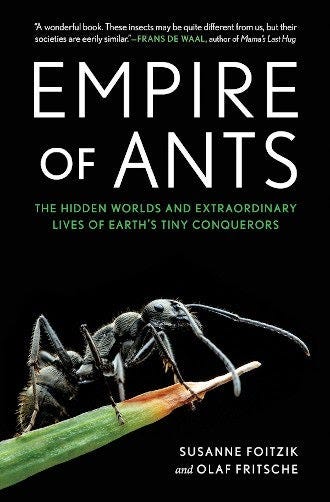
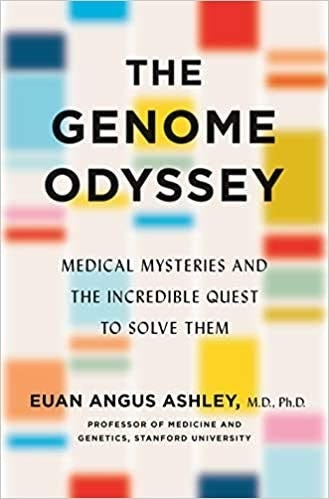
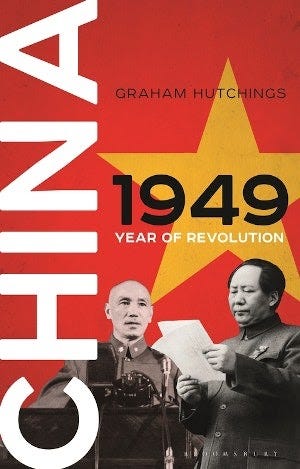
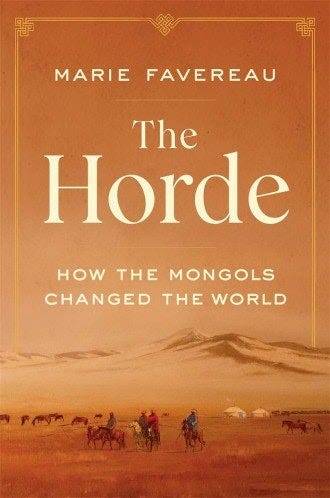
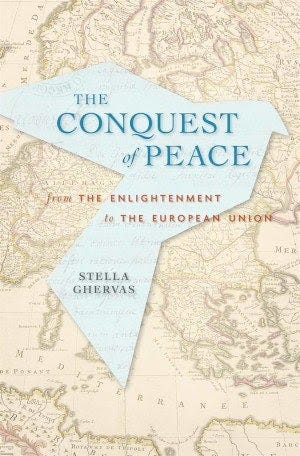
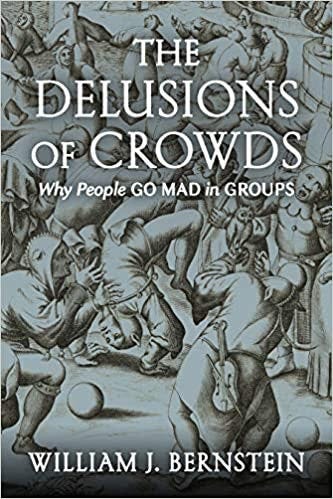
The book I'm most looking forward to this year is by Jeff Hawkins. His book On Intelligence from 2007 transformed my view of how brains work. To me, it finally provided a convincing overarching framework for how we think. Answering a very basic question. Mind is prediction, and your brain is constantly predicting what actions to take to make its preferred prediction happen.
I think it stands up well, as this view has slowly become accepted since his book came out. In particular I think machine learning has indirectly made many people take this view, since ML essentially provides intuitions (predictions), but how those intuitions are formed is hidden knowledge from the ML model. Similarly, our minds give us intuitions, but we have no access to how those intuitions/predictions come about.
Hawkins has a new book out in March, A Thousand Brains: A New Theory of Intelligence. He takes some of his recent papers, and argues in book length form, that the brain (neocortex) has not a single model, but thousands of models, each interacting to predict and model the world. He's a good writer, very clear.
He has some short videos on the book here, where he said his new book is stand alone, so doesn't require reading his old one. If you are interested, I'd suggest spending a few minutes listening to the before you decide if the new book is worth your time.
https://www.youtube.com/hashtag/athousandbrains
Amazon link to book itself is here. This is my top new book for me personally for 2021.
https://www.amazon.com/Thousand-Brains-New-Theory-Intelligence-ebook/dp/B08CDX6YNW
"These were the Tatars who conquered and subjugated Russia for centuries."
Russian historiography annoys me immensely. The historiography begins with the Kievan Rus'. Of them Wikipedia says [correctly in my estimation] they were: "loose federation of East Slavic and Finno-Ugric peoples in Europe from the late 9th to the mid-13th century, under the reign of the Varangian [Viking] Rurik dynasty." The problem is that the connection between Kievan Rus', which was gone by the end of the 12th Century, and the Grand Duchy of Moscow, which is the root of modern Russia is very loose.
Even at the end of the 13th Century, Moscow was a couple of mud huts in the forest that the Mongols had pillaged and burned a couple of times. The first Grand Duke (Velikiy Kniaz) of Moscow was Daniel the youngest son of Alexander Nevsky and an 8th generation descendant of Rurik. Daniel was a vassal of the Golden Horde and paid it tribute. His successors often allied with the Horde to subdue neighboring towns. Eventually they rebelled against the Horde and made it stick.
Did the Golden Horde subjugate Russia. No. First, Russia did not yet exist. Second, the relationship is not anything resembling what we would think of subjugation. It was feudal relationship that amounted to tribute and slave raiding. The Tatar Yoke the Russians call it was more of an annoyance than a governance. Certainly the Horde had no interest in the culture, language, or religion of its subject peoples.
A key part of the birth of Russia is the development of the Orthodox church. The Kievan Rus' were the vector through which the Byzantines converted the Eastern Slavs. But the Rus' were long gone when, in the early 14th Century, Metropolitan Peter, who had been consecrated by the Patriarch of Constantinople, moved from Kiev to Vladimir. Daniel's son Ivan Moneybags, persuaded him to move to Moscow. Ivan's grandson, Dimitri Donskoi, was lucky in that during his reign, St. Sergius founded Trinity Lavra of St. Sergius the monastery became the spiritual center of the Russian Orthodox church. Another stroke of luck was the birth of Andrei Rublev, the great icon painter, in Moscow and his career in the Orthodox Church. Thus, the first great pillar of Russia was created.
"the expansive Russian Empire that emerged in the 16th century was fundamentally different from the Duchy of Moscow that preceded it."
Different, yes, discontinuous no. Influenced by the Horde, no. The Grand Duchy of Moscow became the Tsardom of Russia in the middle of the 16th Century by the efforts of Ivan IV, the Terrible. Thus was born the autocracy. It was an internal development. If you want to look for ideology, you should look a Byzantium. The rulers of Moscow adopted the pretension of the Third Rome. Their political model was the Emperor in Constantinople. Not the khans of the Horde. Russia was declared an Empire by Peter the Great in 1721.
"It had global ambitions, just like the Golden Horde which once ruled it."
The Great Khans of the Mongol empire had that kind of Ambition, but the Golden Horde spent most of their efforts on collecting tribute and jockeying with other Mongol successor groups.
Imperial ambitions do not really require an explanation. The first conquest of peoples not in your immediate ethnoi, pushes any state into imperial expansion:
The History of the Peloponnesian War By Thucydides 431 BC
Book V Chapter XVII: "Sixteenth Year of the War—The Melian Conference—Fate of Melos"
The Athenians said to the Melians: "Of the gods we believe, and of men we know, that by a necessary law of their nature they rule wherever they can. And it is not as if we were the first to make this law, or to act upon it when made: we found it existing before us, and shall leave it to exist for ever after us; all we do is to make use of it, knowing that you and everybody else, having the same power as we have, would do the same as we do."
Book VI Chapter XVIII: "Seventeenth Year of the War—The Sicilian Campaign—Affair of the Hermae—Departure of the Expedition"
Alcibiades speaks: "Men do not rest content with parrying the attacks of a superior, but often strike the first blow to prevent the attack being made. And we cannot fix the exact point at which our empire shall stop; we have reached a position in which we must not be content with retaining but must scheme to extend it, for, if we cease to rule others, we are in danger of being ruled ourselves."